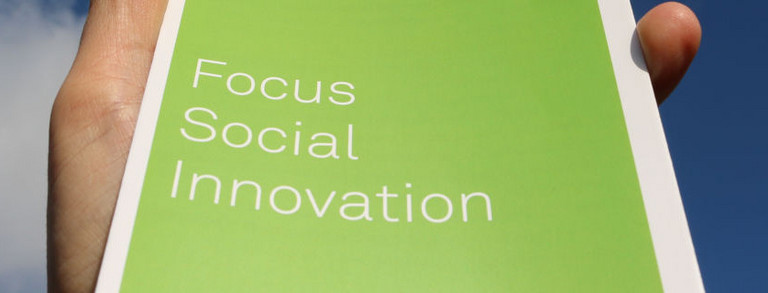European School of Social Innovation
Following the first global conference on Social Innovation in Vienna, the European School of Social Innovation (ESSI) was founded in 2011. Building on the Vienna Declaration on Social Innovation, ESSI's goal is to foster the development of a new understanding of innovation.

The scholars and practitioners from more than 40 institutions and research institutes are convinced that social innovations will help to fully exploit the economic potential of the knowledge society, to distribute resources more equitably and thus to halt growing social inequality. Advancing transformative and transdisciplinary research it develops new capacities for knowledge generation, dissemination, and application. Innovative organizations, methodologies, and networks are needed to effectively combine analytical thinking and practical action. ESSI provides a platform that encourages the exchange of ideas and the development of collaborative activities. ESSI, as a think tank, enables collaboration between members who ultimately form consortia to design and execute a wide variety of projects. In addition, being part of ESSI strengthens the position of member organizations and individual actors in the implementation of their social innovation activities.
Board (2022)
| Name | Funktion | Schwerpunkt |
| Jürgen Howaldt (Social resarch center Dortmund, sfs) | Chairman | Science & Research |
| Antonius Schröder (Social resarch center Dortmund, sfs) | Managing Director | Education & Training |
| Universidad de Deusto | Scientific Director | Science & Research |
| Klaus Schuch (ZSI, Wien) | Subject co-ordinator | Science & Research |
| Jeremy Millard (Danish Technological Institute) | Subject co-ordinator | Co-creation & Empowerment |
| Francesca Rizzo (Politecnico di Milano) | Subject co-ordinator | Education & Training |
| Julia Wittmayer (DRIFT, Rotterdam) | Subject co-ordinator | Co-creation & Empowerment |




![[Translate to English:] [Translate to English:]](/storages/zentraler_bilderpool/_processed_/a/f/csm_Kontakt_b86e8d8ecc.png)
